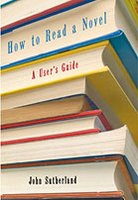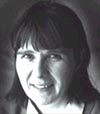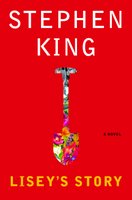The first reason is that, apparently, lit-crit is inherently unsexy :
You can sex up every other section of the paper, but seldom, if ever, the literary pages. And sexy is the flavour of our times.Secondly, because lit-crit has been ruined by the academics. While they come :
... dirt-cheap. ... They can be dull. Really dull. Increasingly the Great British Public doesn't want a bloody academic review. Sad, but again the spirit of the age.And thirdly, a lot of reviewing has shifted to the internet and to blogs. Not necessarily a bad thing, but :
One's only reservation is that, writing against the clock, bloggers often write hastily and thoughtlessly. The blogosphere, under pressure, is doing for literary style - the elegance, for example, of a John Carey or an AS Byatt - what texting has done for punctuation.Now then, I'm not sure why good book-reviews might be considered "un-sexy". But then I'm probably turned on by all the wrong things! The fact is that I really enjoy a well-written review though I tend to seek them out only after I've read the book in question.
No-one wants dull. But academics necessarily don't have to be! A good writer will always remember the audience they are writing for, and if it's a newspaper column for the general public, the piece needs to be entertaining as well as informative, accessible but not dumbed-down. I have really enjoyed some of the pieces written by Prof. Lim Chee Seng in Starmag, for example. Ultimately though it is the editor who is the gatekeeper and must make sure that a dull reviewer doesn't find space on the page.
As for litbloggers not giving the time and attention to a review that would go into a printed piece, I can only talk about this from my own perspective. I'm not at all defensive here, and it's true that sometimes I don't have much time to blog, but want to record something about a book I've read, so I am loath to even call such posts reviews when they are really just a reader's response.
But some of the pieces I post here are also published in newspapers and magazines, and they of course get more time and attention. (Someone is paying for them!) I've also tried to spend more time writing about local books I feel deserve the space, especially if there isn't much chance of them getting a newspaper review. (Having said that, I know I am woefully behind and am very sorry!)
Reviewing properly actually takes time (to read and more often than not reread the book) and a lot of cranking up the old brain. That amount of brain-power exerted in other parts of my life earns me pretty decent money!
But by and large, reviewers here are generally paid very badly (and the payment from one national newspaper has actually gone down by 25% in the time I've been writing for them!). Most folks who write them do it simply for the love of it. They have to.
Talking of reviews though, Amir Muhammad is writing some of the most engaging reviews of locally published books that I have read, in the Malay Mail (the reinvention of the once sleazy tabloid is now complete!) and yesterday he reviewed Sufian Abas' Kasut Biru Rubina very nicely indeed, noting that the collection of stories :
... juxtaposes, with studious glee, the pop-inflected banality of contemporary life with inspired surrealism. Some of the stories are melancholy but most are either macabre or misanthropic; the best combine all three.You can enjoy all Amir's Pulp Friction columns from past issues here and read more of his literary relates musings here.







